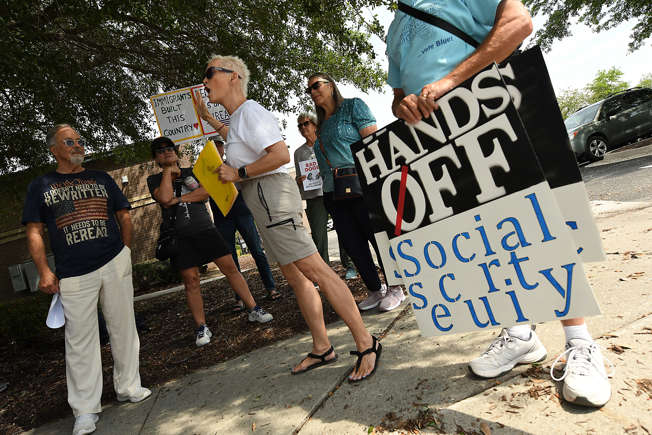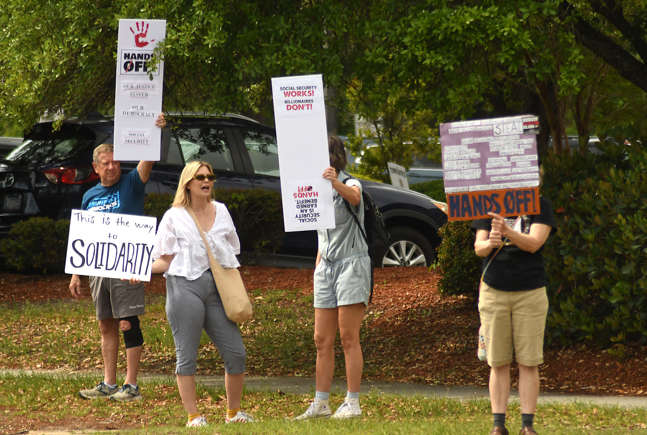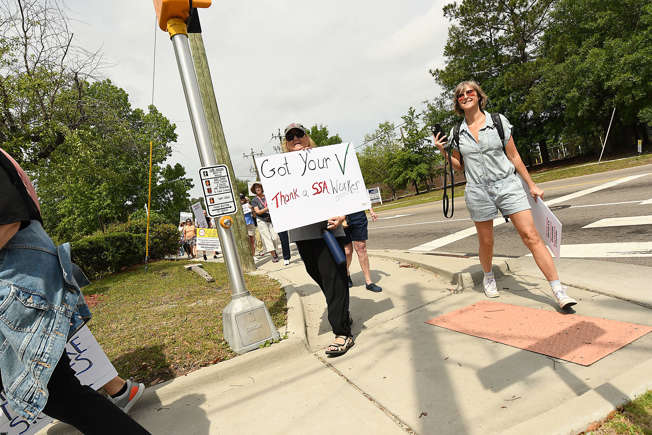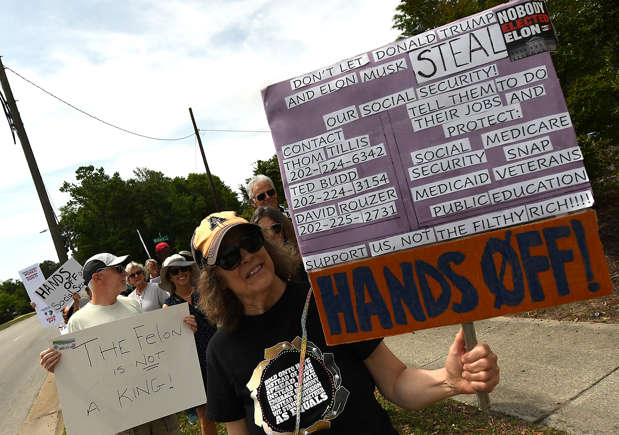“A government bureau is the nearest thing to eternal life we’ll ever see on this earth,” Ronald Reagan once quipped, and nowhere is that better demonstrated than in the Social Security Administration.
Social Security is in dire financial straits. The administration’s expenses have already exceeded revenue for years, and the program’s cash reserves are quickly depleting. The program has outlived its viability and should be reformed or dissolved. However, action remains unlikely.
Our politicians have no interest in ripping benefits away from baby boomers, born between 1946 and 1964, at everyone else’s expense. Generation Z, born between 1997 to 2012, is held hostage in a program that won’t work for them because our politicians refuse to reduce benefits for America’s boomers.
Start the day smarter. Get all the news you need in your inbox each morning.
The Social Security rug will be pulled out from Gen Z
If Social Security is my money, then why can’t I withdraw from it? While I obviously understand why and am asking that question with snark, the answer serves as a good reminder of why the program needs to be cut.
















The reality is that my Social Security benefits are not my money. There is no account with my name on it accumulating interest annually, or even just holding my contributions at a static total. Instead, my contributions to the system are only being made for the promise that one day a younger generation will pay into the system on my behalf.
However, recent issues have made that structure unsustainable. Due to a collapse of the American birth rate, the program is expected to be unable to pay the full promised benefits to retirees within the decade. This will manifest in a 24% across-the-board reduction in benefits.
Still, our politicians have done nothing to resolve the problems with the program out of fear that they will need to make cuts that are unpopular among older Americans. Social Security is a hostage situation in which nobody is willing to kill the program because of the political blowback. The most frustrating part is that it is America’s wealthiest generation that has Gen Z in a bind over government benefits.
Opinion: Trump accounts give newborns $1,000. It could transform generational wealth in US.
Gen Z is held hostage by Social Security
The collective thinking on Social Security is a twofold problem. One is a problem of information, and the other is a problem of sunk-cost fallacy.
Social Security reform is an admittedly in-the-weeds topic, and I can’t expect the majority of Americans to be particularly well-versed on the details. Many Americans don’t even understand the basics, such as how Social Security is funded. Nearly 1 in 4 believe Social Security is a personal retirement savings account, in which their contributions are the same dollars they withdraw later in life.
The result is that most people clutch their pearls at the suggestion that the program has run its course. Roughly 8 in 10 Americans oppose making cuts to the program.
The second part of the issue, however, is that there are more people subscribing to their own sunk cost in the program than are not. As people have invested more of their paychecks into Social Security, with benefits simultaneously becoming closer by the day, their cost-benefit changes.
The generational divide on this issue is staggering. Roughly 52% of baby boomers would prefer to raise taxes, compared with just 13% who would rather cut benefits. Gen Z is the opposite, with 49% preferring to cut benefits and just 20% favoring a tax increase.
A third of both generations (the fiscally illiterate third) would opt to borrow money to pay for Social Security.
Opinion: Gen Z has become lonely and antisocial. We have only ourselves to blame.
Young people are overwhelmingly more favorable toward killing the program because the total contributions we have made are so little and our prospects of benefits are so far into the future. Boomers are met with the opposite dynamic.
However, even we are likely to fall victim to the sunk cost of the program after a certain point. By the time we are in our 40s, Gen Z’s eagerness to end Social Security will probably recede.
This is why you shouldn’t run government programs like Ponzi schemes, because some poor group inevitably gets the rug of benefits pulled out from under them, or the program has to continue on forever. Neither option is a good one, but it’s the choice in front of America as we near Social Security’s insolvency.
Dace Potas is an opinion columnist for USA TODAY and a graduate of DePaul University with a degree in political science.
This article originally appeared on USA TODAY: Social Security is run like a Ponzi scheme. My generation has to end it. | Opinion
